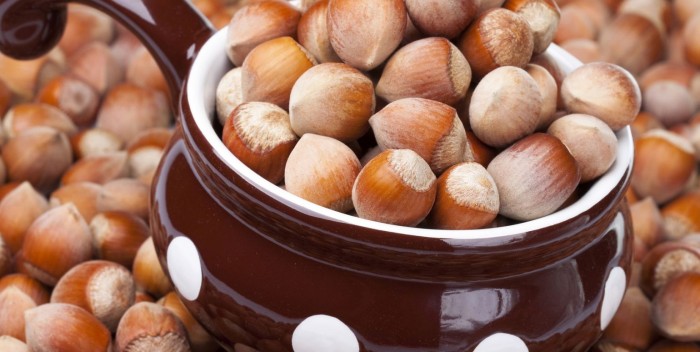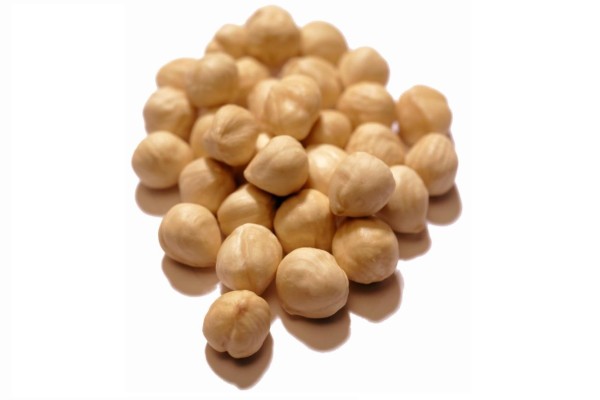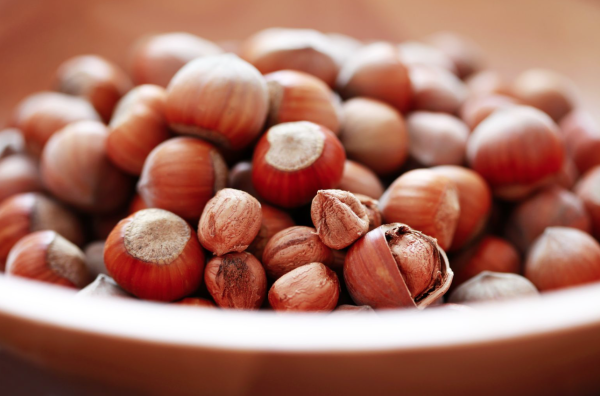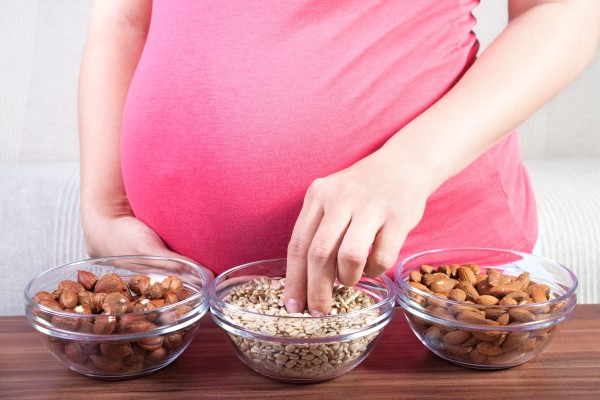Hazelnuts: benefits, harms, calories
Like most other nuts, hazelnuts cannot be fully counted as a healthy food. On the one hand, it contains many useful substances and valuable vitamins. At the same time, due to the high calorie content, it is absorbed quite hard.
Content
The benefits of hazelnuts
Among the components of hazelnuts there are potassium and calcium, which have a positive effect on the condition of the heart muscle and the walls of blood vessels. These substances strengthen them and increase their elasticity. It is useful to use hazelnuts for various blood diseases, for example, with anemia. The nut has a positive effect on patients with ailments of the blood vessels, for example, with varicose veins or thrombophlebitis.
Regular inclusion of hazelnuts in the menu can significantly increase immunity. Walnut cleanses the body of toxins and prevents helminth infection. Hazelnuts contain paclitaxel, which is known for its anti-cancer effect, therefore it is recommended to use the nut to prevent the development of oncology. For the development of muscle tissue, hazelnuts contain a large amount of protein and vitamin E.
Since ancient times, hazelnuts have been advised to be eaten for:
- Improving the palatability of breast milk for nursing mothers.
- Bloating warnings in toddlers.
- Against the formation of kidney stones.
- Treatments for bronchitis, anemia and rheumatism.
- Treatment of epilepsy and elimination of helminths in the form of oil.
Butter from hazelnuts are widely used in cooking, in particular in the manufacture of confectionery. It has the ability to keep fresh for a long time and is well absorbed. Hazelnut oil is also used for treatment. For example, hazelnut oil mixed with raw protein in half is used to treat burns. In its pure form, the oil is useful to rub into the hair to improve its condition.
It is especially recommended to consume hazelnuts regularly for men. Large amounts of protein are beneficial for muscle building and for stimulating the production of testosterone, which is the most important male reproductive hormone.
In addition, hazelnuts are an excellent prophylactic agent for prostate diseases and a means for general strengthening and maintaining strength during significant physical exertion. Daily consumption of up to 50 g of hazelnuts per day, a man has every chance to maintain normal sexual function after the age of 50.
Hazelnut harm
Like other products, hazelnuts will only be beneficial if you follow the measure when using it. The nut contains a large proportion of fat and protein, which makes it a fairly high-calorie product. Therefore, excessive use of it creates a significant load on the liver. In case of metabolic disorders, it is also worth limiting the use of hazelnuts.
Another reason to be wary of eating nuts is gastrointestinal diseases. Hazelnuts are hard enough for the body to digest and take a long time to digest, therefore, in large volumes, it creates a high load on the digestive tract.
Only high-quality nuts are allowed to be eaten. If the hazelnuts have a rancid taste or traces of mold, this indicates poor quality. You cannot eat such nuts, as there is a high probability of getting poisoned.
Hazelnut contraindications
Overeating hazelnuts threatens such troubles as gaining excess weight and disturbances from the digestive tract. There is a high probability of getting long-term constipation, heartburn may appear in combination with nausea and flatulence, as well as dry throat.
Often, when overeating hazelnuts, an allergic reaction develops - rashes appear on the skin, itching and burning in the mouth. Sometimes overeating develops symptoms characteristic of hypervitaminosis.
You can not eat hazelnuts, especially in large quantities, for people with advanced liver disease and diabetes. This can cause severe headaches due to cerebral vasospasm.
You should be very careful about hazelnuts in case of metabolic disorders. Hazelnuts contain a large amount of saturated fats, which, if metabolized incorrectly, are converted into fatty deposits.
Calorie content of hazelnuts
In comparison with other categories of products, hazelnuts have a very high calorie content. In raw form, the calorie content of these nuts is 665 kcal per hundred grams of product. This far exceeds the energy value of the same chocolate. In terms of its nutritional qualities, the nut is ahead of fish and meat, but it contains much less carbohydrates. Therefore, it can be argued that the largest number of calories in hazelnuts comes from fats and proteins. To provide yourself with a daily supply of energy, you need to eat only 200 g of nuts.
During heat treatment, the calorie content of hazelnuts changes slightly, both upward and downward, depending on the cooking method. For example, the energy value of a nut in chocolate is slightly lower and amounts to 590 kcal, a roasted nut has a calorie content of 690 kcal, and a dried nut has a caloric value of 667 kcal.
Hazelnuts during pregnancy
It is especially recommended to use hazelnuts for young mothers to stimulate milk production and improve its taste. This nut is also useful for women who are just preparing to become mothers. Even with a high energy value, hazelnuts are recommended to be included in your menu for a healthy and balanced diet. The high content of fatty acids in hazelnuts helps the formation of the fetus, in particular, they are beneficial for the bone tissue of the fetus and the nervous system.
Hazelnuts contain a significant amount of vitamin E, which is useful for maintaining female beauty and preventing early aging. The nut is recommended to be consumed to increase the body's immune defenses. pregnant, especially against infectious diseases. A large proportion of potassium and calcium are beneficial for the health of the nervous system.
Among the components of the nut, there are many vitamins belonging to the B group, therefore, it is useful to use it for the proper formation of the baby's muscle tissue, including for the development of the heart muscle. Since the nut is quite high in calories, it should not be abused, especially for those women who are overweight or gain weight quickly during pregnancy.







